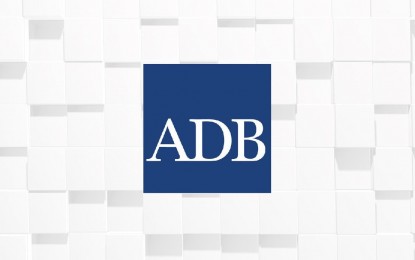
MANILA – The Asian Development Bank (ADB) said slower inflation, monetary easing and sustained public spending on major infrastructure projects will help the Philippine economy grow by at least 6 percent in 2024 and 2025.
In its Asian Development Outlook (ADO) September 2024 report released on Wednesday, the ADB maintained its growth forecast for the Philippine economy at 6 percent for 2024 and 6.2 percent in 2025.
The ADB, however, revised downward its inflation forecast to 3.6 percent this year from the earlier estimate of 3.8 percent.
It said the lower forecast reflects the sustained deceleration in food prices partly due to lower tariffs on rice imports.
President Ferdinand R. Marcos Jr. earlier issued Executive Order 62, which lowered the tariffs on imported rice from 35 percent to 15 percent.
"Food price pressures are expected to continue to dissipate on the impact of reduced import duties on key staples. The government reduced rice duties to 15% from 35% for imports until 2028 subject to periodic review, and extended the reduced tariff rates on corn, pork, and mechanically-deboned meat," the ADB said.
"A sustained moderation in inflation could allow further monetary policy easing after a 25-basis point cut in the policy rate to 6.25% in mid-August," it added.
For next year, the ADB expects inflation to settle to 3.2 percent, also down compared to its previous estimate of 3.4 percent.
The ADB said continued investments in infrastructure will also boost economic growth.
The Philippine government expects public infrastructure spending to range between 5 to 6 percent of the country's gross domestic product annually from 2024 to 2028.
Its Build Better More infrastructure program includes 66 ongoing projects and another 31 approved for implementation as of August 2024.
The infrastructure program aims to enhance physical connectivity through railways, bridges, and airports, or strengthen water management through irrigation, water supply, and flood control.
Climate change mitigation and adaptation, digital connectivity, energy, and agriculture projects, are also prioritized under the program.
“Most of the ingredients for the Philippines’ sustained economic growth are in place—rising government revenues are boosting public expenditures on infrastructure and social services, increasing employment is driving consumption, and reforms to open the economy to more investments are underway. With inflation slowing, the country is in a strong position to lead growth in Southeast Asia,” ADB Philippines Country Director Pavit Ramachandran said. (PNA)
